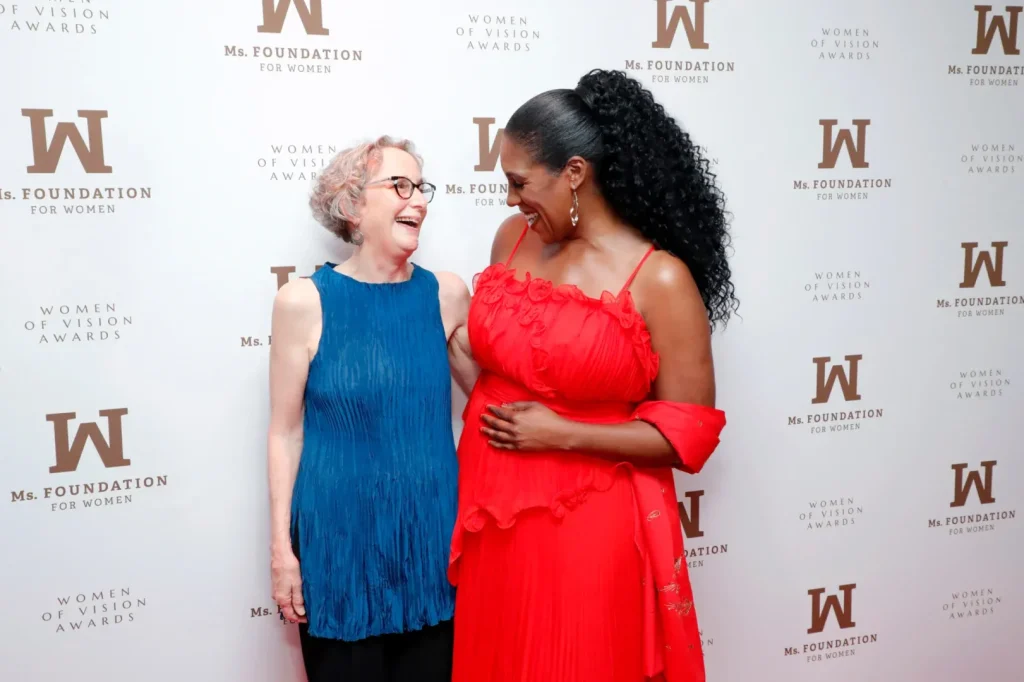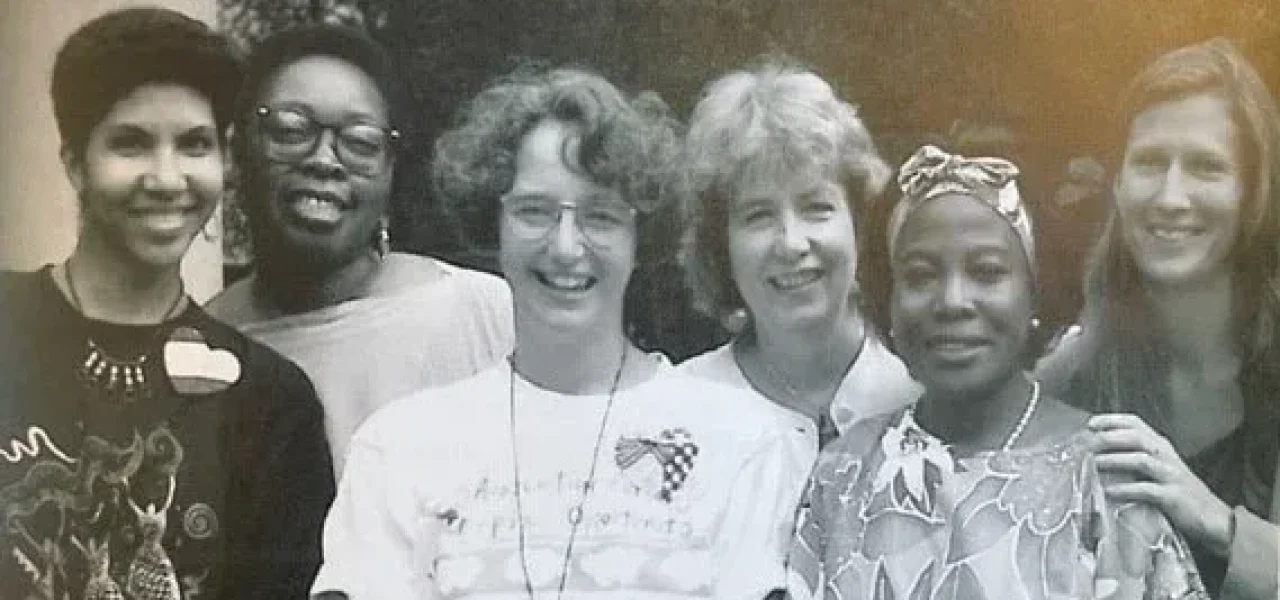December 4, 2023
50 Years of the Ms. Foundation: Sara Gould
by Sara Gould
Throughout our 50th anniversary year, we’re telling the stories of leaders who have worked with the Ms. Foundation during different periods of the organization’s history. This Q&A was written by Sara Gould, former president & CEO of the Ms. Foundation. Now mostly retired, Sara continues to advise social justice organizations and leaders. Tell us about your relationship with the Ms. Foundation: I worked at the Ms. Foundation for 25 years, six of them as president & CEO. My first job in New York City, in 1983, was with the Women’s Action Alliance, which was located in the same building as the Ms. Foundation. The Foundation had maybe five employees then and was not as widely known by women activists around the country. I visited the office and right away knew I wanted to work there. At the Women’s Action Alliance, I was getting connected to organizations around the country led by women of low-income and women of color who were working on better paying jobs for women, including through self-employment, and I thought that the Ms. Foundation was the right place to expand that work. In April of 1986, Marie C. Wilson, the Foundation’s new executive director, hired me to start up the Economic Development Project. Under Marie’s leadership, the Foundation grew year after year. In 1996, I became the vice president for all of our programmatic work. In 2004 I was appointed the president & CEO. I worked with and learned from so many amazing people during my years at the Foundation – our staff, our supporters, our board members, and of course our incredible grantee partners and the other leaders that we connected with both in the fields in which we were active and throughout philanthropy. I left the Foundation in 2010. I feel very lucky now to have a close relationship with current president & CEO, Teresa C. Younger, and to have the opportunity to support her and everyone at the Ms. Foundation as it moves into its next 50 years. What is one thing you’re proud of in your work with the Ms. Foundation? I know all of us at the Foundation in 2005, both staff and board, were very proud of our response to the devastation in New Orleans caused by the levees breaking during Hurricane Katrina. Many actors in the philanthropic community responded generously at that time using the lens of race and class to shape their grantmaking strategies. Knowing that there was no women’s fund in New Orleans or Louisiana at the time, we established the Katrina Women’s Response Fund, designing our strategy with a race, class, and gender lens. We learned from our sisters around the world that women play certain roles in their communities and families in times of disaster, particularly in reweaving the fabric of community during the recovery and rebuilding phases. Through the Fund, we were able to support organizations across our issue areas of health and safety, reproductive justice, and economic justice – organizations that were working to ensure that women of color were represented at every policy table that was forming in the wake of the disaster. Over three years, with the support of the W.K. Kellogg Foundation and several other individual and institutional funders, we granted some $3 million dollars in New Orleans and the greater Gulf Coast, and our approach to grantmaking influenced millions of other philanthropic dollars going to the region. This work strengthened our ability to think and make grants across issue silos, a skill that we continued to build as we raised significant new support for movement-building grantmaking outside of issue silos in subsequent years. +++ For 50 years, the Ms. Foundation for Women has shaped women’s philanthropy in the United States, providing a blueprint for the establishment of hundreds of local and regional women’s funds, influencing mainstream culture through nationwide projects such as Take Our Daughters to Work Day, and making grants totaling over $90 million to more than 1,600 grassroots organizations across the country.


